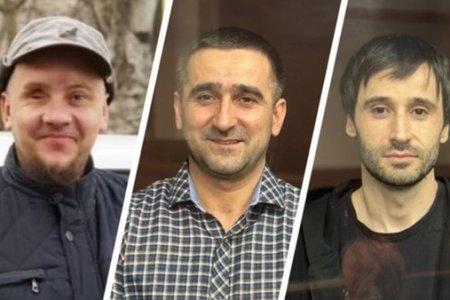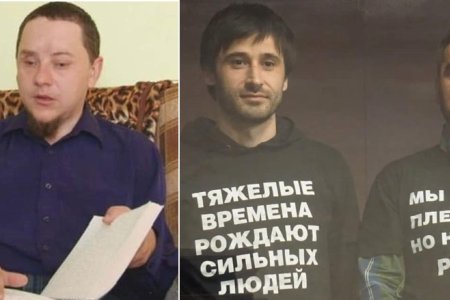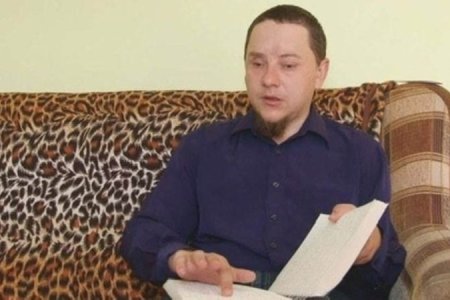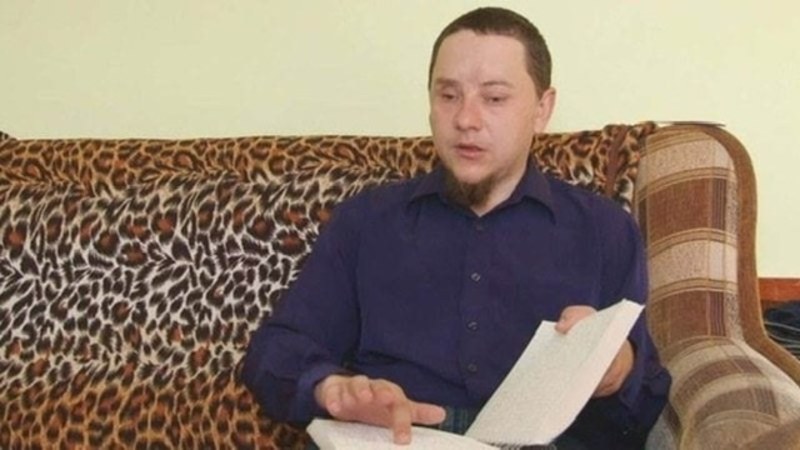
Oleksandr Sizikov has been hospitalized in Russian-occupied Crimea, with the final stage of Russia’s illegal trial of the blind and seriously disabled Ukrainian adjourned, but only for two weeks. Russia has already tortured one Crimean Tatar political prisoner, Dzhemil Gafarov, to death and is directly threatening the lives of at least two others (Amet Suleimanov and Servet Gaziev). There seem few grounds, therefore, for optimism that judges from the notorious Southern District Military Court in Rostov (Russia) will refuse to pass the 18-year sentence demanded against Sizikov, a recognized political prisoner.
Sizikov’s lawyer Safiye Shabanova reports that Sizikov was admitted to the neurological department of the Bakhchysarai Central District Hospital during the night from 23-24 March. He had been so unwell that the ‘court debate’ – the final stage before the court delivers the verdict - scheduled for 15 March had been postponed until 27 March. As well as flu symptoms, Sizikov also complained of severe headaches which could well be due to the catastrophic head injuries he sustained when hit by a car in 2009 which left him blind, and unable to move about without assistance. Despite the fact that Shabanova had provided all of the necessary documents to confirm that Sizikov had been admitted to hospital where he was undergoing examination, the court in Rostov still issued an order for Sizikov to be forcibly brought to the hearing. It quoted a note from the Russian penal service claiming – falsely – that Sizikov was not in hospital. The defence, however, produced enough documentary evidence to prove that the note by some anonymous individual in the penal service was a fake, and the hearing was adjourned until 18 April.
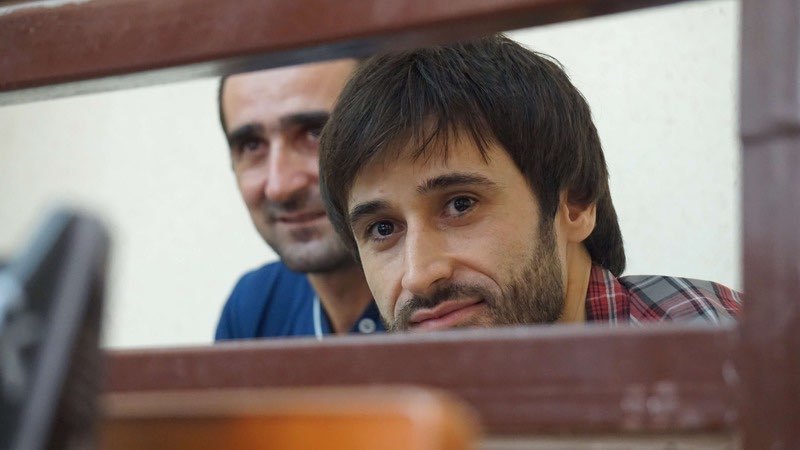
Oleksandr Sizikov was arrested on 7 July, as were the two Crimean Tatars with whom he is on trial: Seiran Khairedinov and Alim Sufianov. Although the charges are purportedly about ‘terrorism’, the armed FSB and other enforcement officers who carried out ‘searches’ of the men’s homes made no pretence of looking for weapons or anything suggesting plans to commit acts of violence. In fact, the FSB have long stopped even searching for so-called ‘prohibited religious literature’ and almost standardly bring it with them, claiming to have ‘found’ it during the ‘searches’ which the men’s lawyers are prevented from attending. The families of both Khairedinov and Sufianov stated from the outset that the armed men who had burst into their homes had planted the ‘prohibited’ books. The full cynicism of the FSB’s behaviour, however, only became clear later, when it transpired that they had also planted books in Sizikov’s home which were not in Braille, and which, therefore, Sizikov could not have read since 2009. This is obviously of significance since even Russia, which is violating international law by applying its repressive legislation on occupied Ukrainian territory, does not deny that Crimea was under Ukrainian jurisdiction in 2009. There is no such thing as ‘prohibited religious literature’ in Ukraine’s legal system, and the charges that Russia is using to imprison men for up to 20 years are particularly shocking as the men are accused only of involvement in Hizb ut-Tahrir, a transnational Muslim organization which is legal in Ukraine.
Although Hizb ut-Tahrir is not known to have committed acts of terrorism or violence anywhere in the world, Russia’s Supreme Court passed a highly secretive ruling in February 2003 declaring it a ‘terrorist organization’. Russia has been using such arrests and ‘convictions’ on charges of terrorism against Crimean Tatars and other Ukrainian Muslims since 2015 and is increasingly applying such measures against men who protest against political persecution and try to ensure that the world learns what is happening. Both Sizikov and Sufianov had actively visited political trials and Sizikov, despite his disability, had held several single-person pickets in support of political prisoner Edem Smailov.
Russia has arrested over 100 Crimean Tatar and other Ukrainian Muslims from occupied Crimea on surreal ‘terrorism’ charges, with at least one person facing the more serious charge of ‘organizing’ a supposed Hizb ut-Tahrir group (Article 205.5 § 1 of Russia’s criminal code), while the others are accused of ‘involvement’ in this alleged group (under Article 205.5 § 2). In this case, Sizikov, who needs help to move around and can only read in Braille, is claimed to have ‘organized’ a group with Khairedinov and Sufianov among the supposed ‘members’. All three men are also charged, under Article 278, with ‘planning to violently seize power’. According to the Memorial Human Rights Centre, this charge in Russia tended to be added in cases where men had refused to ‘cooperate’ with the prosecution. None of the Crimean Muslims arrested has ever agreed to cooperate and in occupied Crimea, it seems to be automatically applied. There are no grounds for any of the above charges, with the prosecution merely claiming that the three men had tried, as purported members of Hizb ut-Tahrir , to sow division in society “through militant Islamic propaganda”.
Sizikov is supposed to have been the organizer of a group which purportedly “carried out covert anti-constitutional activities through exerting influence on people’s religious feelings; organized and carried out meetings of the group, so-called ‘khalakaty’; looked for new participants and circulated the ideas”.
This ‘trial’ is also shocking because the FSB have yet again used a supposed ‘anonymous witness’ whose identity has, in fact, long been known, as have his reasons for collaborating with the FSB. Konstantin Tumarevich is a fugitive from justice in his native Latvia, and his vulnerable legal position in occupied Crimea and lack of documents provided the FSB with clear leverage against him. He has thus far been used to provide ‘anonymous witness’ testimony against at least 20 recognized political prisoners. In each such ‘trial’, the ‘judges’ ignore the fact that there are no grounds for secrecy, and every reason to conclude that it is the FSB Tumarevich would need to fear, if he refused to collaborate, not the political prisoners or their families. In general, the presiding ‘judge’ in these cases blocks questions from the defence which demonstrate that the so-called ‘witness’ is lying.
Khairedinov and Sufianov have both been in Russian captivity since 7 July 2020. Sizikov, however, is one of only two Crimeans arrested on ‘Hizb ut-Tahrir charges’ who were placed under total house arrest due to their disability status (in Sizikov’s case) or life-threatening heart condition in that of Crimean Solidarity civic journalist Amet Suleimanov. Russia will be violating its own legislation if Sizikov is imprisoned, however in January this year Russian prosecutor Sergei Aidinov demanded an incredible 18-year sentence in the worst of Russian penal institutions against Sizikov, and 14 years in the cases of Khairedinov and Sufianov.
